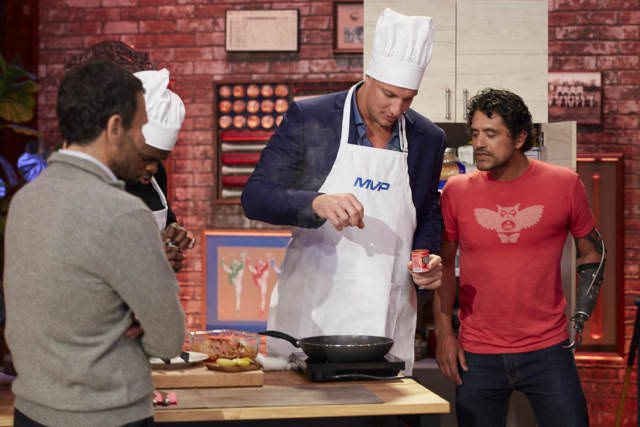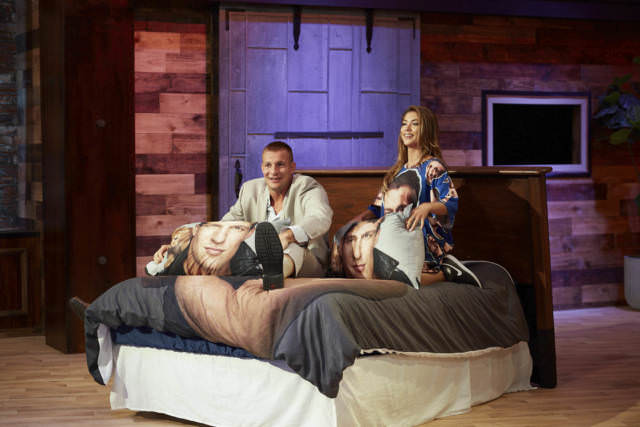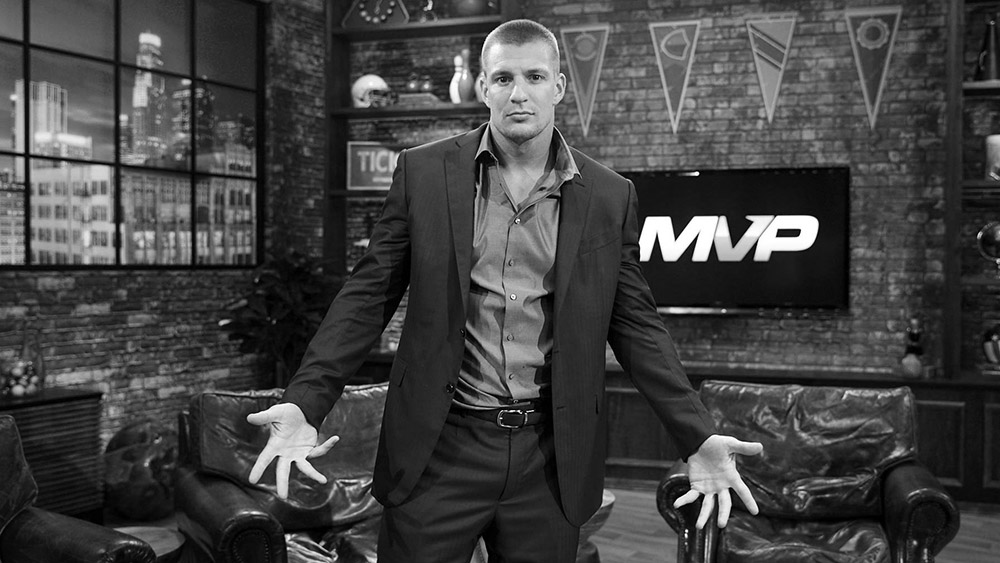Brands tapping athletes to be the face of their businesses has forever been a cornerstone of company marketing initiatives. In the early 20th century, baseball players helped sell a range of products from alcohol to tobacco, gum, gunpowder, soda and razors.
The role of the modern-day marketer-and-athlete relationship is not limited to sneakers and sports drinks anymore.
Big-box brands with even bigger budgets pay bounties to use athletes to connect with consumers—that is no secret. Players are tapped to be brand voices and faces from anything and everything you can imagine. However, as quarterback Cam Newton recently proved with his sexist comments, one slip and you immediately fall from good grace.
The competitive nature that carries athletes to conquests on the field assists to bring riches from brand courtships off of it. Athletes naturally want to invest the countless millions in spoils they’ve collected and wear the beret of a businessman. Some do so successfully, others not.
One of the most marketable athletes on the planet today is New England Patriots tight end Rob Gronkowski, a stellar player who has struck deals with the likes of Nike, Monster, Tide, Dunkin’ Donuts, DraftKings, SMS Audio and BodyArmor—just to name a few—throughout his career.
The two-time Super Bowl champion is now expanding his off-field exploits to Verizon’s digital network go90 as producer for Most Valuable Partner (MVP), a show that helps start-ups connect with athletes to bring celebrity and influencer endorsements and businesses together through an entertainment medium.
In an interview with AListDaily, Gronkowski says the series, which debuts its 18-episode second season Monday on go90, sits right at the center of the evolving relationship between brands and athletes.

“I’ve been lucky enough to have had quite a few successes in the endorsement world,” Gronkowksi told AListDaily. “I’ve always tried to form partnerships where fans will love the finished ads, but now I wanted to give them a behind-the-scenes look into how I find these partners, and also provide a forum for my fellow MVPs to find that next big deal of their own.”
MVP gives athletes like Melvin Gordon, Chuck Liddell, Andre Ward, Calais Campbell, Terrell Owens, Jay Ajayi, Julius Randle, P.K. Subban and Patrick Peterson a chance to meet start-ups Shark Tank-style and find deals they typically wouldn’t be able to elsewhere, all while showing off their business skills to viewers and letting them see the inner workings of how these deals get made. Athletes have the option of pursuing investment, brand ambassador-ship or simply passing.
The show speaks to the explosion in consumer interest in sports, marketing and the world of building start-ups, says Russ Axelrod, creator and executive producer of MVP and co-founder of production company Pitchmen.
“Consumers are becoming savvier than ever when it comes to the business world,” Axelrod told AListDaily. “Consumers have also taken a real interest in what athletes do off of the field, and we’re giving them an inside look at some of the most visible parts of our athletes’ business dealings. If a show like Shark Tank can take off when 99.9 percent of viewers don’t know the panel, imagine what we can do with a panel instantly recognizable by millions.”
Gronkowksi, known more in sports and pop culture for his All-Pro gridiron acumen and frat boy-like personality, believes there is a real consumer appetite for the format that creates offshoots showcasing the world of celebrity ambassadorship in categories such as culinary, music and beauty because he says sports fans are just as savvy about business as they are with sports.
Contrary to overwhelming images of the Patriots player shirtlessly shotgunning beers and incessantly partying, Gronk is as savvy off the field as he is a star on it. The spike-smashing pass catcher also wants to show the more serious side to him that’s rarely seen during the offseason.
“While the most important thing for me is far and away football, my off-the-field passions and business dealings are just as fun, and will hopefully be with me much longer,” said Gronkowski. “I want to prove that I’m not just a football player. There’s much more to me than that.”
The 28-year-old admitted in his 2015 memoir It’s Good To Be Gronk that he’s saved every cent from his Patriots contracts and only spends money earned from marketing deals.
He now wants to spread a message with his story that brands can continue to innovate their marketing with athletes to leverage power, reach and connection.

“There are tons of ways to be more creative and have fun on digital—which if you know my personality, I love. I want to move past one-off campaigns. If we’re going to get in bed together, let’s make it a long-term thing,” Gronkowski says. “We’re having a lot more interaction with the teams internally, on a corporate level—as opposed to just their agencies and marketing people. It’s cool because we really get to know their business.”
Axelrod says brands are now open to allowing athletes to be more than just a face—but to be a true partner discussing strategy and investment.
“Athletes are looked up to as heroes of our society for their excellence in their sport, but also as kings of lifestyle as their salaries allow them to afford whatever they want in the world—so if they’re using something, it’s natural that their fans would want to as well,” he says. “You’re seeing people being brought in to have real conversations with the marketing teams. They’re weighing in on packaging, logos, flavors and even the marketing that they aren’t even a part of. There’s so much more to these athlete deals than just the ads we get to see as consumers—how the matches are made, how the deals are built and how the campaigns are created.”
Gronkowski says go90, which continues to grow its exclusive content library, is the perfect platform to partner with because it reaches the right audience and consumer—digitally active 16-to-34-year-olds who are both entrepreneurs and wantrepreneurs.
“Young fans are pretty much consuming all of their content on their phones and computers, so it’s the perfect spot for us to reach them with a show like this,” says Gronkowski.
“These are the savviest consumers out there,” adds Axelrod. “They’re the die-hard sports fans playing more fantasy sports than ever. They have a keen interest in the business world. They’re the Instagram-and-Facebook addicts who see postings about endorsement deals. Given that viewer base, an insight into how these deals get made seemed like a perfect place for us to start.”
The days of athletes pushing products they’re lukewarm about are coming to an end Axelrod says because we now live in an obvious and transparent world led by social media.
“There’s no worse way to market your product than letting fans know the person you’re paying to use it won’t even use it. ‘How could you expect me as a consumer to pay for it if that’s true?’” he says.
Gronkowski, a former Madden cover athlete whose previous business ventures have hit the seas with a three-day cruise dubbed the “SS Gronk” says start-ups are changing the brand ambassador model because they’re more likely to give equity since they’re strapped on cash.
“There’s real upside for both of us. We’re in it together,” he says. “Sports is, and will always be, one of the more popular interests in our country. What I love about athletes is that we earn our cred with our fans through talent and hard work, and I think the fans respect that, which we can hopefully pass on to our brand partners.”

